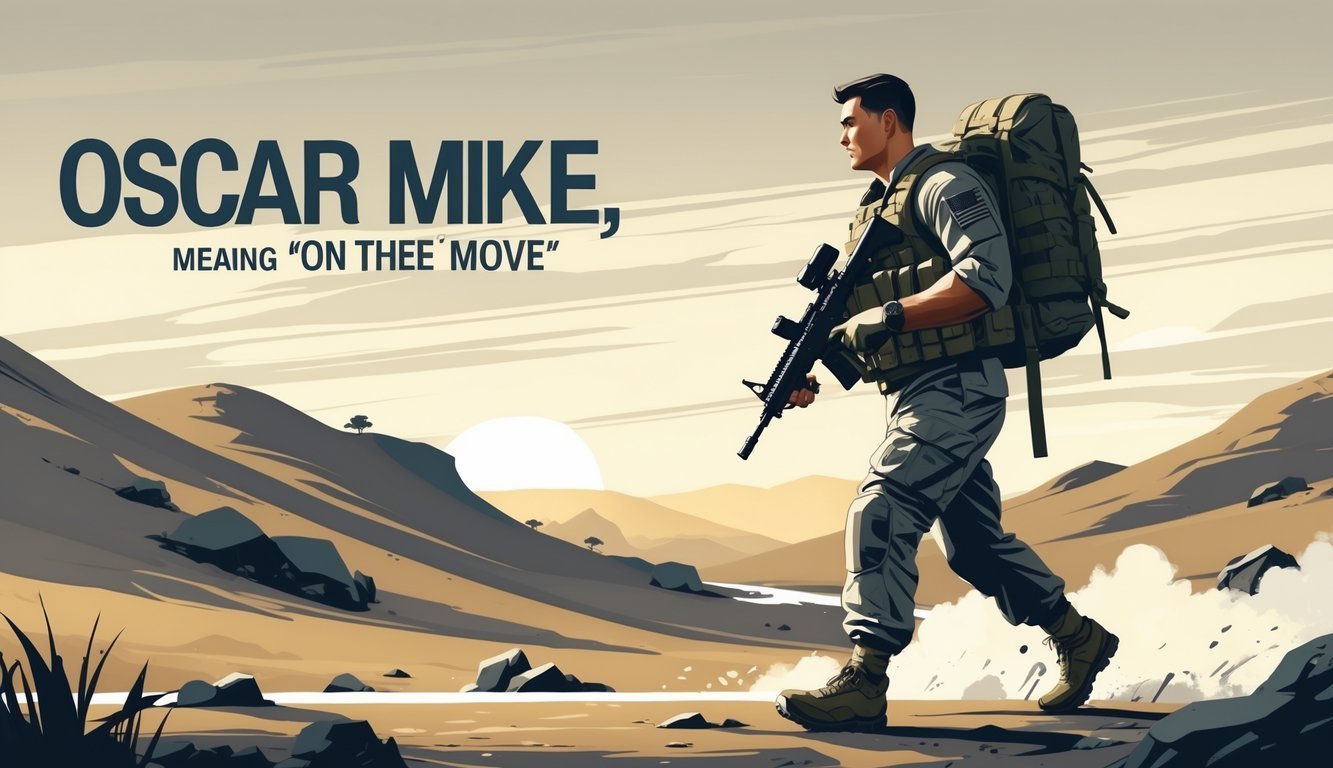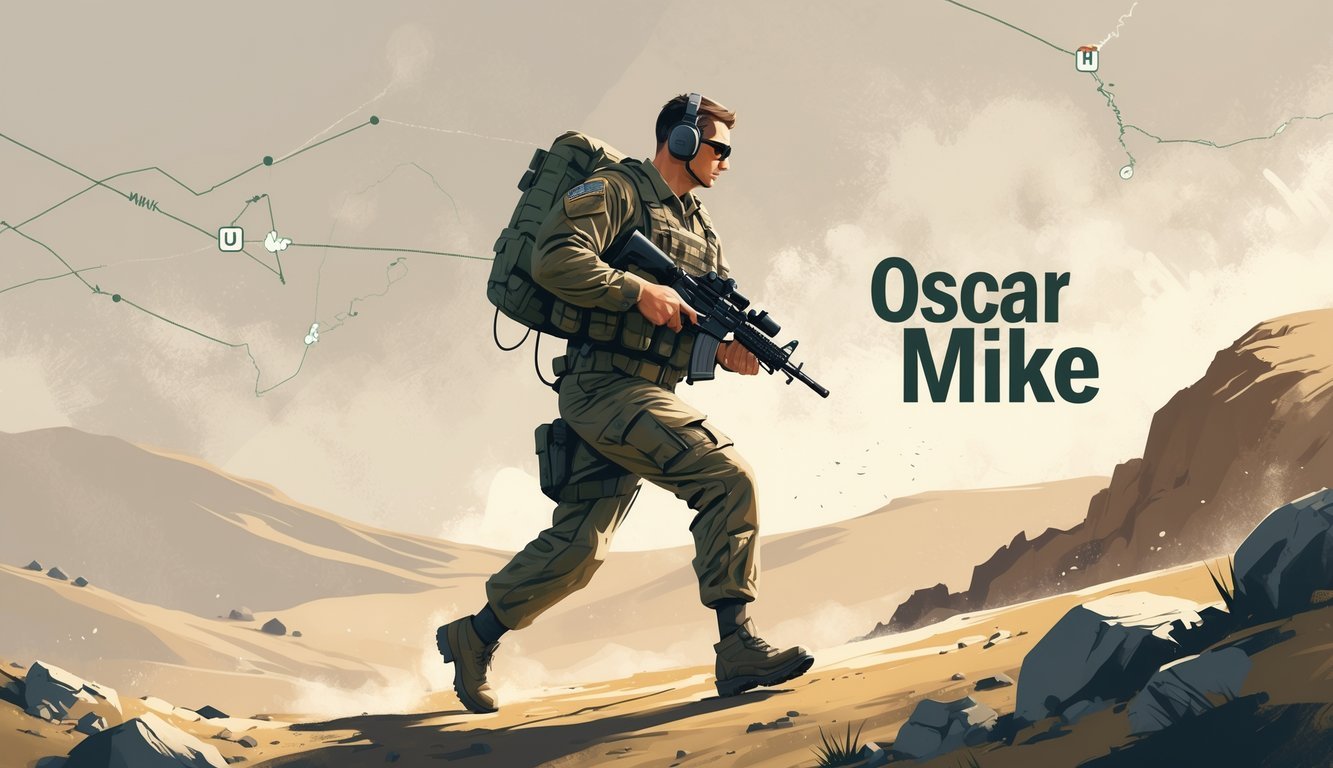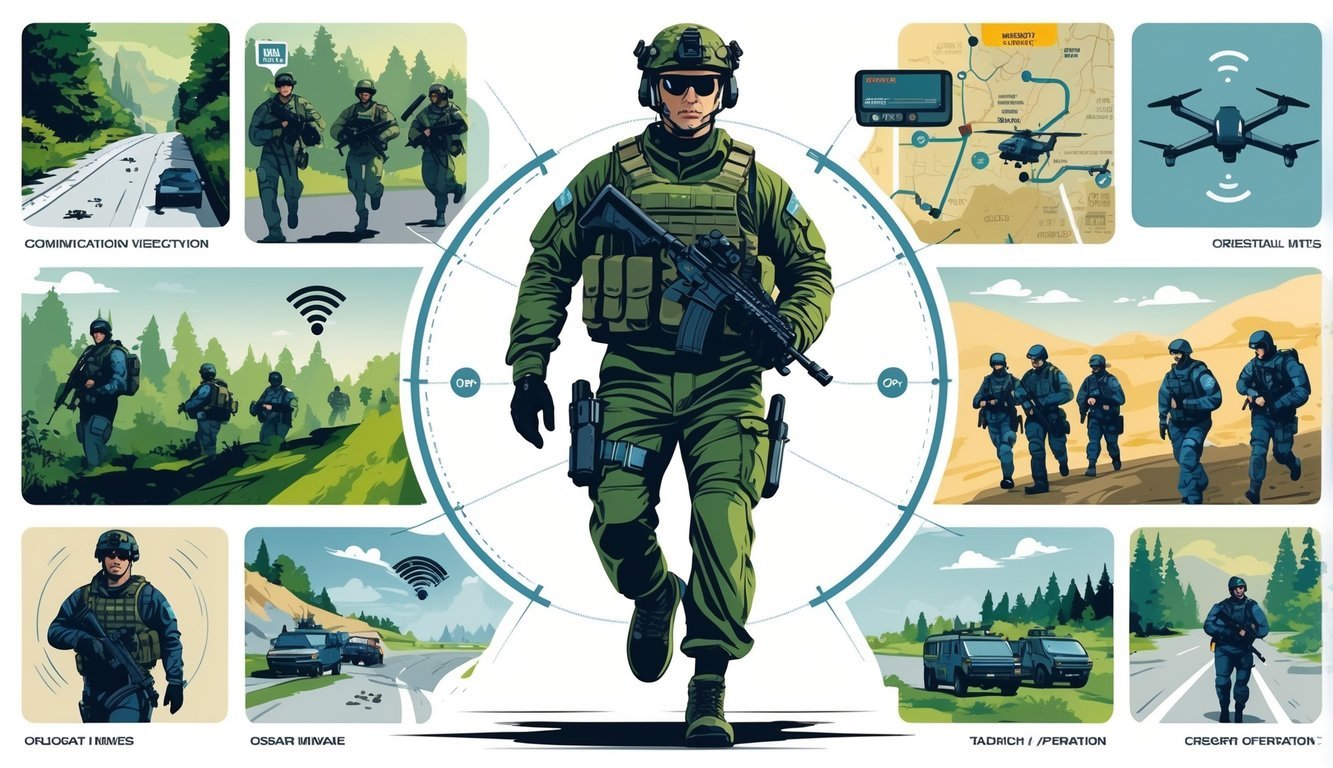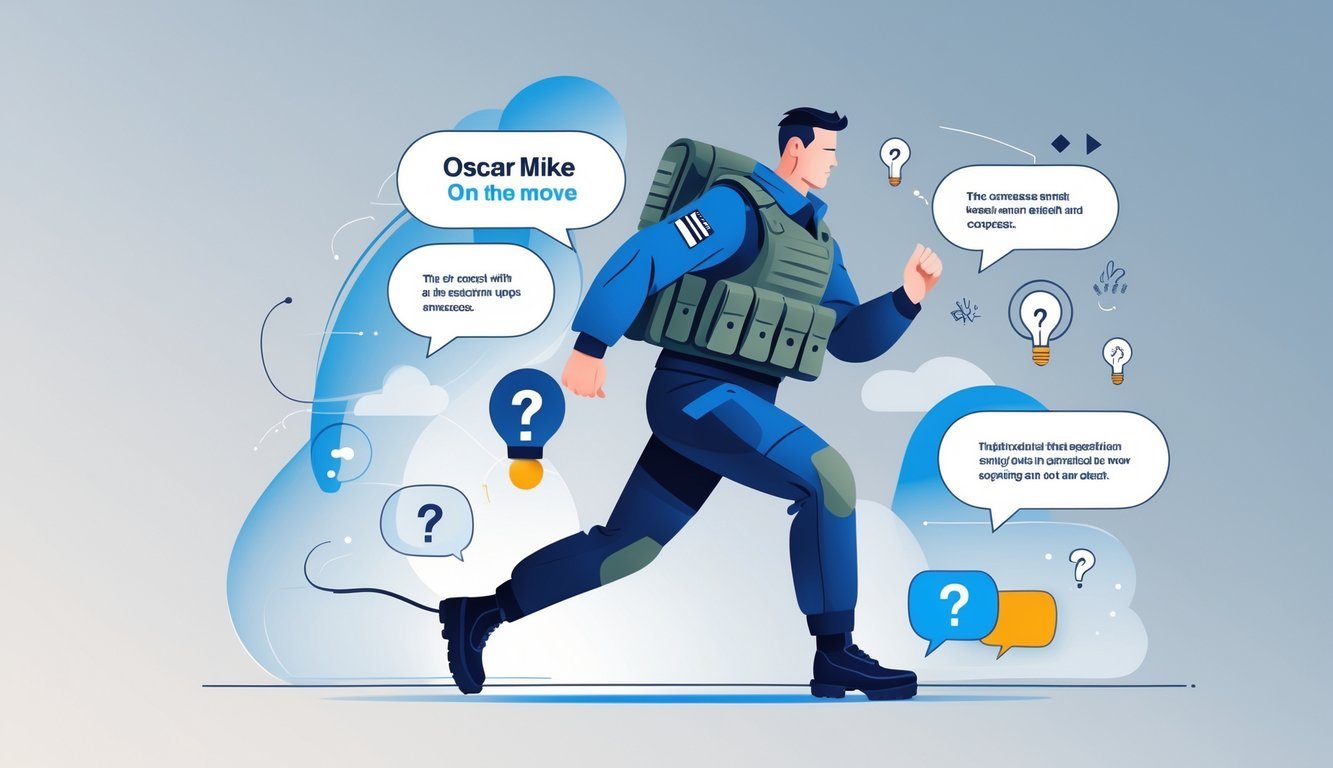PsychNewsDaily Publishers
100 Summit Drive
Burlington, MA, 01803
Telephone: (320) 349-2484
PsychNewsDaily Publishers
100 Summit Drive
Burlington, MA, 01803
Telephone: (320) 349-2484
Oscar Mike is a military term meaning "On the Move," originating from the NATO phonetic alphabet to enhance clarity in communication during missions.

Ever hear someone toss out the phrase “Oscar Mike” and wonder what on earth they’re talking about? You’re definitely not the only one. Oscar Mike is a military phrase that means “On the Move.” People use it to say that someone or something is moving or taking action, especially over the radio during missions.
This phrase comes straight from the military phonetic alphabet. “Oscar” stands for “O” and “Mike” stands for “M.” Put those together and you get a code that tells everyone a team or person is moving out.
You’ll hear this term outside the military too, especially among veterans or folks who love military culture.
Getting what “Oscar Mike” means can help you understand military communication. It’s all about action and progress. Curious about where it comes from and why people still use it? Let’s dig in.

When someone says “Oscar Mike,” they mean action—someone’s moving in a military setting. The words come from the phonetic alphabet, making it super clear that troops or units are heading out or changing position.
“Oscar Mike” is military shorthand for “On the Move.” Soldiers and commanders use it to let others know their unit is actively shifting or heading out.
You’ll catch this phrase a lot over the radio during missions or patrols. It makes it easy to update everyone that a team isn’t standing still anymore—they’re traveling or moving toward a spot.
Short messages like “Oscar Mike” cut down on confusion and keep things efficient when everyone needs to know what’s happening quickly.
The NATO phonetic alphabet gives us “Oscar” for O and “Mike” for M.
Put those together—O and M—and you get “On the Move.” This makes radio chatter clearer, especially when there’s a ton of background noise.
The US Armed Forces and NATO started using this system around World War II to make sure nobody misheard important info. The phonetic alphabet really helped clear up radio talk.
Troops and commanders use “Oscar Mike” to quickly share their status. If you say “Oscar Mike,” you’re telling your team you’re traveling or changing locations.
In fast-moving or stressful moments, clear communication matters a ton. This code keeps things brief and lets soldiers focus on their job while staying in the loop.
It signals movement and readiness, so everyone up and down the chain knows what’s going on.

Military folks use “Oscar Mike” in specific ways to keep communication sharp. It fits right in with other military slang and even pops up in pop culture. The phrase shows up in radio talk, combat orders, and everyday slang.
If you hear “Oscar Mike” on the radio, it means a unit’s moving out or heading for a target. The military uses this kind of shorthand to save time and avoid mix-ups.
In battle, this phrase lets everyone know they’re on the move. It covers anything from shifting equipment to changing positions to keep ahead. That sense of drive is key for keeping missions on track.
Quick, efficient communication is everything. “Oscar Mike” replaces longer phrases like “on the way” or “in transit.” Using it right keeps your team in sync and cuts down on mistakes.
“Oscar Mike” is just one of many military phonetic terms for status updates. For example, Lima Charlie means “loud and clear.” Charlie Mike tells everyone to “continue the mission.”
You might also hear Whiskey Tango Foxtrot (basically “what’s going on?”), Tango Mike (“thanks much”), and Bravo Zulu (“well done”).
Some phrases describe situations, too. Charlie Foxtrot is a mess, and Tango Uniform means something’s broken or out of commission.
Knowing these terms helps you keep up with military lingo.
Outside the military, “Oscar Mike” pops up in games like Call of Duty, where it signals squad movement. Gamers use it to know their team’s advancing or changing position.
You’ll spot it in movies and TV shows about the military, adding a layer of realism. It gives viewers a taste of real military life and language.
Civilians sometimes use it too. Veterans and supporters might say it at events or in organizations, especially to show resilience or moving forward after tough times.
It’s kind of cool how “Oscar Mike” made its way from radios to everyday talk.

Here are some quick answers about what “Oscar Mike” means, where it started, and how soldiers use it. You’ll also find info on similar phrases and how these codes work.
“Oscar Mike” means “On the Move.” If you hear it on the radio, someone or a unit is moving from one place to another.
It keeps communication fast and clear during operations.
The term comes from the NATO phonetic alphabet. “Oscar” is for O, “Mike” is for M—together, “On the Move.”
They started using it to make radio messages shorter and easier to get.
If a soldier hears “Oscar Mike,” they know the sender is moving. They might acknowledge it or adjust their own position.
It helps everyone stay on the same page during missions.
“Oscar Mike” means you’re moving. “Charlie Mike” means “Continue Mission.”
Use “Oscar Mike” when you start moving, and “Charlie Mike” when you’re sticking with the plan.
You’ll hear things like “Bravo Zulu” for “Well Done” and “Tango Mike” for “Thank You.”
These codes keep talk quick and clear, no matter the situation.
“Oscar Tango Mike” means “On Target, Mission.”
People use it when they want to say they’ve hit a goal right on the mark during a mission or operation.